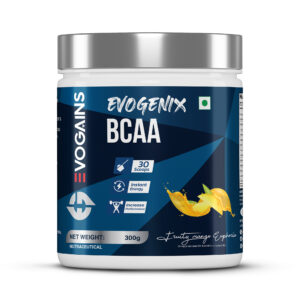
-
 ₹1,449.00Select options This product has multiple variants. The options may be chosen on the product page
₹1,449.00Select options This product has multiple variants. The options may be chosen on the product page -
 Sale Select options This product has multiple variants. The options may be chosen on the product page
Sale Select options This product has multiple variants. The options may be chosen on the product page₹1,398.00Original price was: ₹1,398.00.₹699.00Current price is: ₹699.00. -
 Sale Select options This product has multiple variants. The options may be chosen on the product page
Sale Select options This product has multiple variants. The options may be chosen on the product page₹1,298.00Original price was: ₹1,298.00.₹649.00Current price is: ₹649.00. -
 Sale Select options This product has multiple variants. The options may be chosen on the product page
Sale Select options This product has multiple variants. The options may be chosen on the product page₹1,398.00Original price was: ₹1,398.00.₹699.00Current price is: ₹699.00.
Unlocking the Power of Amino Acids: Why You Need EAA & BCAA Supplements
When it comes to choosing the right supplements for muscle growth, Essential Amino Acids (EAAs) and Branched-Chain Amino Acids (BCAAs) are two popular options that often come up in discussions among fitness enthusiasts. Both EAA and BCAA supplements play a crucial role in muscle building and recovery, but there are some key differences between the two. In this article, we will explore the benefits of EAA and BCAA supplements, compare their effectiveness for muscle growth, and assist you in choosing the one that would be better for your fitness objectives. To understand the supplements more we will be starting with exploring some basics about Creatine Powders.
EAA Supplements
Essential Amino Acids (EAAs) Significance:
Essential Amino Acids (EAAs) are vital nutrients that the body cannot produce, necessitating their intake through diet or supplementation. These nine amino acids play key roles in protein synthesis, muscle repair, and various physiological functions critical for overall health.
Muscle Protein Synthesis and EAAs:
Muscle protein synthesis is the process responsible for muscle repair and growth. EAAs, particularly leucine, act as signaling molecules that initiate and enhance this process. Therefore, sufficient intake of EAAs, especially leucine-rich sources, is essential for maximizing muscle protein synthesis and facilitating muscle growth.
Types of EAA Supplements:
EAA supplement come in various forms, including blends containing all nine EAAs, supplements focused on leucine, and individual EAA supplements targeting specific amino acids.
Popular EAA Supplements:
Examples of popular EAA supplement include Scivation Xtend, Optimum Nutrition Essential Amino Energy, and MuscleTech Amino Build Next Gen, all designed to support muscle recovery and performance.
EAA Vs BCAA
Differentiation Between EAA and BCAA:
Essential Amino Acids (EAAs) encompass nine amino acids crucial for bodily functions, while Branched-Chain Amino Acids (BCAAs) consist of three of these EAAs: leucine, isoleucine, and valine.
EAA Contains BCAAs, but BCAAs Lack Other EAAs:
EAA supplements contain all nine essential amino acids, including the three BCAAs. In contrast, BCAA supplements only provide these three amino acids, lacking the remaining essential amino acids.
Studies Comparing EAA Vs BCAA for Muscle Growth:
Research on the effectiveness of EAA versus BCAA supplements for muscle growth yields varying results. While some studies suggest that best EAA supplements may be superior due to providing the complete spectrum of essential amino acids, further research is needed to conclusively determine their comparative efficacy.
EAA Benefits
- Enhanced Muscle Growth and Repair: EAA supplements provide the necessary building blocks for muscle protein synthesis, leading to increased muscle growth and faster repair of damaged muscle tissue. This is particularly beneficial for athletes and individuals engaging in regular physical activity.
- Increased Energy Levels During Workouts: Essential Amino Acids (EAAs) play a crucial role in energy production during exercise. By providing a readily available source of amino acids, EAA supplements can help sustain energy levels throughout workouts, improving endurance and performance.
- Supports Overall Health and Wellbeing: Beyond muscle growth and performance, EAA supplements contribute to overall health and well-being. They are involved in various physiological processes, including immune function, hormone regulation, and neurotransmitter synthesis. By ensuring adequate intake of essential amino acids, EAA supplements promote optimal health and vitality.
BCAA
Definition and Significance of Branched-Chain Amino Acids (BCAA) for the Body:
Leucine, isoleucine, and valine are the three necessary amino acids that make up the group known as branched-chain amino acids, or BCAAs. These amino acids are called “branched chains” due to their unique chemical structure. BCAAs are essential nutrients that the body cannot produce on its own, hence they must be obtained through diet or supplementation. They are vital for various physiological functions, with a particular emphasis on muscle health and performance.
The Role of BCAAs in Muscle Recovery and Reducing Muscle Fatigue:
BCAAs play a crucial role in muscle recovery and reducing muscle fatigue, especially during and after intense physical activity. Here’s how:
Muscle Protein Synthesis: BCAAs, particularly leucine, stimulate muscle protein synthesis, the process through which new muscle tissue is built and repaired. By promoting protein synthesis, BCAAs facilitate muscle recovery and growth following exercise-induced damage.
Energy Source: During prolonged exercise, BCAAs can serve as a source of energy for working muscles. When muscle glycogen levels become depleted, the body may utilize BCAAs as fuel, helping to prolong endurance and delay fatigue.
Reducing Exercise-Induced Muscle Damage: BCAAs may help reduce exercise-induced muscle damage and soreness. Studies suggest that supplementation with BCAAs before and after strenuous exercise can attenuate markers of muscle damage and decrease perceived soreness, leading to faster recovery.
Types of BCAA Supplements Available in the Market:
BCAA supplements are available in various forms to cater to different preferences and needs. Common types include:
BCAA Powder: Powdered BCAA supplements can be mixed with water or other beverages for convenient consumption before, during, or after workouts.
BCAA Capsules or Tablets: These supplements offer a convenient option for individuals who prefer pre-measured doses of BCAAs in pill form.
BCAA Energy Drinks: Some BCAA supplements come in the form of energy drinks, combining BCAAs with additional ingredients like caffeine for an extra energy boost during workouts.
BCAA Powder
Benefits of BCAA Powder over Other Forms:
BCAA powder offers rapid absorption, providing a concentrated dose for customizable intake.
Ease of Consumption and Digestion:
Simple to mix with water or beverages, BCAA powder facilitates quick digestion and absorption.
Mixability and Versatility in Usage:
BCAA powder mixes easily into various liquids, allowing versatile consumption options.
Potential Side Effects and Dosage Recommendations:
While generally safe, excessive intake may cause discomfort; the recommended dosage is 5-10 grams per day.
Conclusion
In conclusion, if you’re looking to maximize muscle growth, recovery, and overall performance, incorporating both BCAA and EAA supplements into your routine may be the most beneficial approach. By combining the unique benefits of each supplement, you can create a synergistic effect that enhances muscle building, recovery, and endurance. Whether you choose EAA, BCAA, or a combination of both, prioritize consistency, proper nutrition, and a well-rounded workout program to achieve your fitness goals effectively.